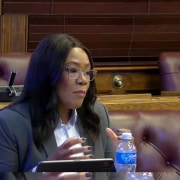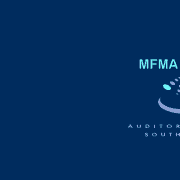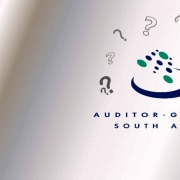|
Getting your Trinity Audio player ready...
|
South Africa’s municipalities are regressing in terms of their financial reporting; fruitless and wasteful expenditure stands at R7.41-billion – up from R4.89-billion in 2021/22 – while unauthorised expenditure is at R24.12-billion. And only 34 of the 257 that were audited for the 2022/23 financial year achieved clean audits.
Delivering the 2022/2023 municipal audit outcomes in Parliament on Tuesday, Auditor-General (AG) Tsakani Maluleke told the portfolio committee on co-operative governance and traditional affairs (Cogta) that her office continues to encounter the same challenges across the bulk of the country’s municipalities that they have been highlighting for years, with little or no change.
“Overall, there has been little change and – despite commitments made for improvement – action has been too slow with little impact on the lived realities of ordinary South Africans.”
The silver lining though, said Maluleke, was that many of the traditionally troubled municipalities have improved on their rate of reporting, and respond positively to the AG’s and provincial governments’ interventions.
Furthermore, the reliance by municipal administrators on consultants, which imposes a heavy financial burden on municipal budgets, lessened from the previous year, from R1.63-billion to R1.35-billion. Limpopo topped the other provinces in this area, having spent R280-million, while the lowest spender was the Western Cape at just over R40-million.
As for the strengthening of systemic and compliance standards, in the majority of municipalities (110) – which find themselves in the ‘unqualified with findings’ category – there is a common lax attitude towards addressing simpler compliance issues that the AG has flagged, and for this reason they keep failing to move up into the clean category.
“Local government’s inability to comply with legislation remains a significant obstacle, with 86% of municipalities receiving material compliance findings. This marks a slight regression from previous years, with compliance findings at 85% in the last year and 83% in 2020-21,” Maluleke said.
Metropolitan municipalities did not present a positive picture in the reporting period either, with only one – the City of Cape Town – making it into the clean category. Ekurhuleni had shared this spot with Cape Town in the previous report, but this time around did not make the cut. Four of the remaining metros achieved outcomes in the ‘unqualified with findings’ category, while the rest fell into the ‘qualified with findings’ category.
A concern for Maluleke was district municipalities, which she described as surprisingly inefficient for a category that does not have the complexities of local municipalities, as they provide more of an oversight role with bigger budgets. The majority of these (69) also achieved ‘unqualified with findings’ results, while only 18 achieved clean audits.
Key challenges
Committee chairperson and former health minister Zweli Mkhize noted several key challenges that the national Cogta department – represented in the session by Minister Velenkosini Hlabisa and Deputy Minister Parks Tau – should prioritise efforts to curb the regression.
These priorities include:
- the continued regress in audit outcomes,
- the high cost of consultants where there should be an effort to build internal capacity within municipalities,
- the recurring challenge of unfunded budgets,
- the apparent lack of consequences for administrators in struggling municipalities – even after the AG has flagged issues, and
- the status of criminal investigations arising from the AG’s findings on material irregularities.
Hlabisa responded by saying a committee that includes representatives from his department, the National Treasury, Ministry of Electricity and Energy, and the departments of Human Settlements, Water and Sanitation, and Transport, has been hard at work to develop a turnaround plan for the local government sector. His department’s focus is on the worst performing municipalities, where they will conduct a full skills audit of executives and mayors to determine if they would respond effectively to the turnaround plan.
“We will need to know who is there, what are the qualifications of the municipal managers, just to understand. Because if you make the wrong deployment, you will hardly get the correct product. You might find the CFO not meeting the minimum requirement of that position, but the council appointed them,” said Hlabisa.
Recommendations
Among Maluleke’s recommendations, which she acknowledged have remained the same for some time, is that the local government sector needs a determined professionalisation and capacitation effort to ensure that municipal systems are improved and sustained, for better service delivery.
“My call is for urgent action and is again directed to the political leadership of municipalities. There is limited time left in their term to leave a legacy of improved governance and delivery.”
There is also a need to instil a culture of ethical and accountable leadership that moves according to a shared vision and is responsive to challenges. Where municipalities struggle to perform, the relevant support structures must also be identified to ensure that there is impact in reform measures.








